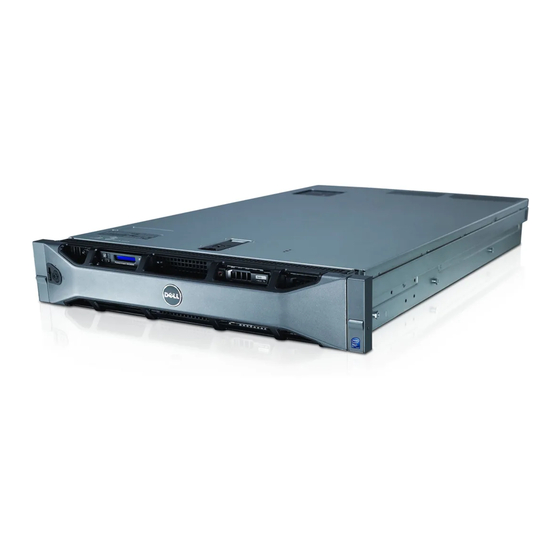Dell PowerVault NX3000 Handleiding voor beheerders - Pagina 32
Blader online of download pdf Handleiding voor beheerders voor {categorie_naam} Dell PowerVault NX3000. Dell PowerVault NX3000 50 pagina's. Document
Ook voor Dell PowerVault NX3000: Handleiding bijwerken (32 pagina's), Handleiding voor probleemoplossing (17 pagina's), Instellen (2 pagina's), Specificaties (2 pagina's)

NOTE:
default check box is selected.
4 On the Select Server Roles window, select the Active Directory
Lightweight Directory Services check box, and then click Next.
NOTE:
window appears. Click Add Required Features to continue, and then click
Next.
5 On the Active Directory Lightweight Services window, review the
summary information, and then click Next.
6 On the Confirm Installation Selections window, read any informational
messages, and then click Install.
7 Review the Installation Results window to verify that the installation
succeeded.
8 Click Close to exit the wizard.
The Active Directory Lightweight Directory Services node is created
under the Roles node in the console tree.
Creating a New AD LDS Instance
To create a new AD LDS instance:
1 Click Start Administrative Tools Active Directory Lightweight
Directory Services Setup Wizard.
2 On the Welcome to the Active Directory Lightweight Directory Services
Setup Wizard window, click Next.
3 On the Setup Options window, select a unique instance, and then click
Next.
4 On the Instance Name window, type a name for the instance, and then
click Next.
NOTE:
5 On the Ports window, fill in the LDAP port number and SSL port number
text boxes, and then click Next.
NOTE:
is 636.
6 On the Application Directory Partition window, select the Yes, create an
application directory partition.
32
Using Your NAS System
The Before You Begin window is not displayed if the Skip this page by
If additional features are required for installing AD LDS, a pop-up
For this example, you can use nfsadldsinstance as the instance name.
The default LDAP port number is 389 and the default SSL port number
